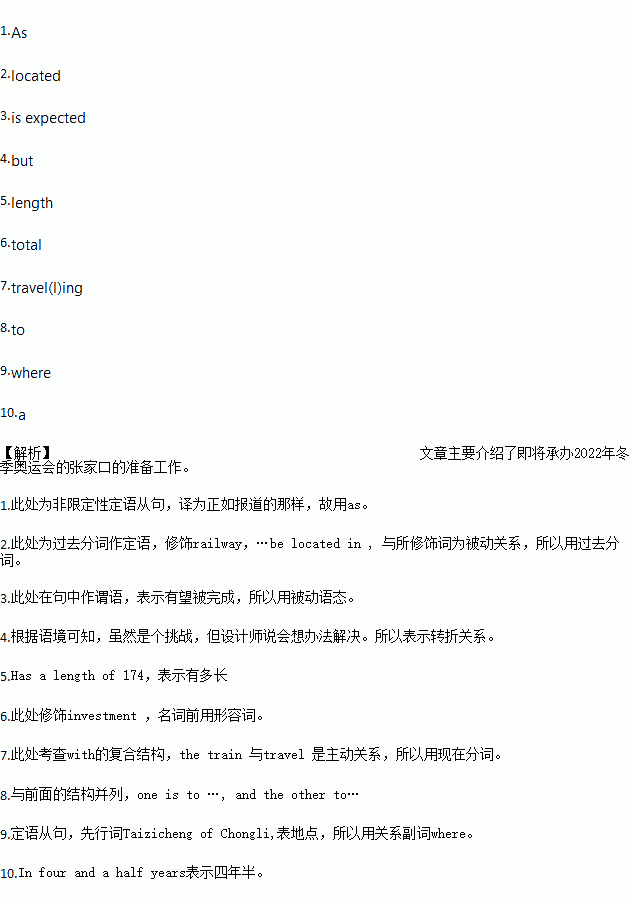题目内容
That Beijing with Zhangjiakou succeeded in getting the chance to host the 2022 Winter Olympic Games, speeds up the development of Zhangjiakou City.1.is reported, the Beijing-Zhangjiakou high-speed railway2.(locate) in North China, is being built now. It 3.(expect) to be completed by 2020 in preparation for the 2022 Winter Olympics. The project is a big challenge, 4.designers say they will find ways to solve problems. The line has a5.(long) of 174 km as a double tracked passenger line, with ten stations along its route. Having a 6.totally) investment of 31.17 billion yuan, the trip between the two cities will only take 40 minutes, with the train 7.(travel) at an average of 250 km/h. The high-speed railway will build two branch lines—one is to Yanqing Station and the other 8. Taizicheng of Chongli, 9.the Olympic village lies. The full railway, which includes 70-kilometer section through Beijing, will be completed in four and 10. half years.

